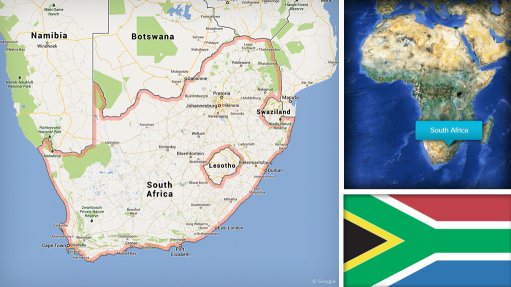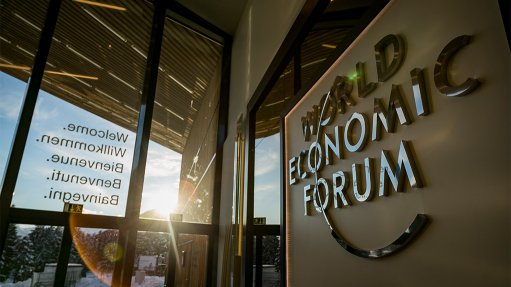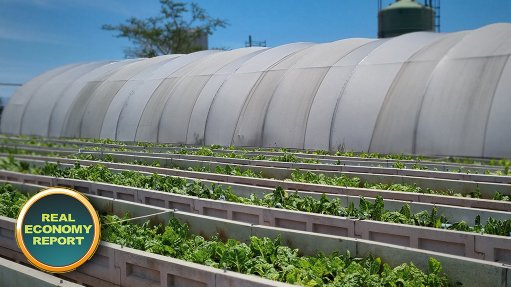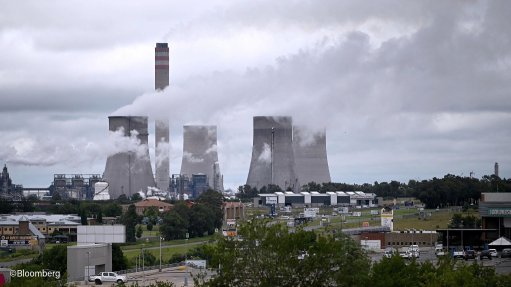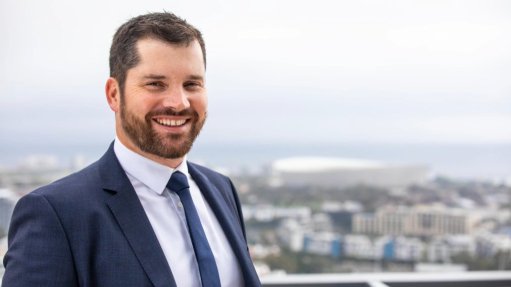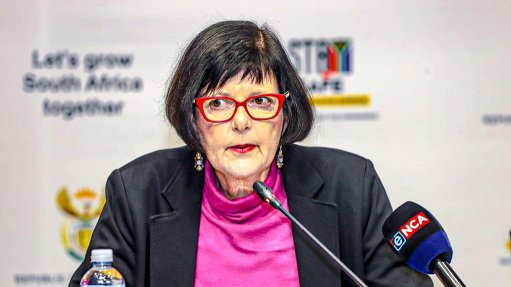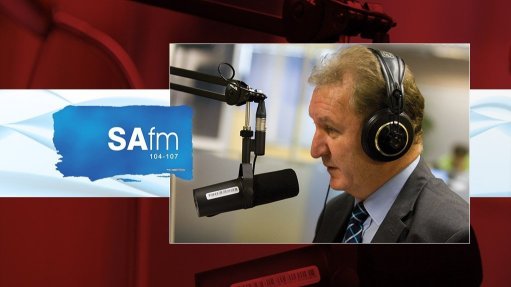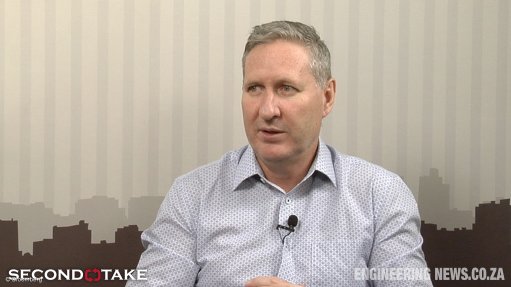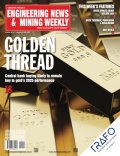Worse than useless, but who is listening?
The difficulty with the English language – and this is compounded by the fact that South Africa is a country of non-first-language English speakers – is that words tend to be used without their meaning being fully comprehended. As a result, many South Africans are quick to use a word like ‘useless’, although they do not understand what it actually means, which is ‘having no ability or skill in a specified activity or area’.
That said, the English language is quite fascinating. As a side note – or should it be side bar? – take the word ‘word’ and the letter ‘s’. When ‘s’ is placed before ‘word’, the combination is ‘sword’, but when it is placed after it, the combination is ‘words’. As my mother told me, it is all about context. In South Africa, more often than not, the context is lost, and it is all about words. It is time to cut the words.
As I write this article, my thoughts are disturbed by a massacre unfolding on tele- vision; the Springboks are being slaughtered – yet again. As I stare into the abyss that has become Springbok rugby, I wonder what the word is for ‘worse than useless’. Quite ironically, South Africa is losing to Ireland, a country (it is, in fact, two countries) that has a singular call – ‘Ireland’s Call’. It is a call that should reverberate throughout South Africa. The lyrics are most appropriate and applicable: “Ireland, Ireland, Together standing tall, Shoulder to shoulder, We’ll answer Ireland’s call. Come the day and come the hour . . .”
But real competition is not confined to sport; the more important competition takes place on the economic stage, particularly when it comes to competing for investment. So, would you invest in South Africa? Would you advise others to do so?
Two days before the televised massacre, the National Treasury released a media statement on the International Monetary Fund’s (IMF’s) economic update visit to South Africa, which took place from October 30 to November 8. This visit followed the conclusion of South Africa’s Article IV consultation in May. Do you know what an Article IV consultation is? In essence, when a country joins the IMF, it agrees to subject its economic and financial policies to scrutiny. Besides others, a country makes a commitment to pursue policies that are conducive to orderly economic growth and reasonable price stability, and to provide the IMF with data about its economy. The IMF’s scrutiny serves to identify weaknesses that are causing, or could lead to, financial or economic instability, in a process known as surveillance. This yearly review, comprising consultations with a country, is what is known as an Article IV consultation. It is so called because it is a requirement stipulated by Article IV of the IMF’s articles of agreement.
The most recent of the IMF’s main findings are articulated in the National Treasury’s media statement. These are that South Africa continues to face a challenging economic outlook for both 2017 and 2018, despite a recovering global economy; the implementation of some key reforms has stalled, and many State-owned enterprises (SOEs), which are supposed to be engines of growth, remain inefficient; an accelerated pace of implementing structural reforms could prompt a recovery in business and consumer confidence, which could improve economic growth; and the IMF welcomed the role of the Presidential Fiscal Committee, which signals the political will to implement long-delayed reforms and remove obstacles to investment, thus unlocking economic growth potential.
So, what do you make of the main findings? In a word, dilutional’ – and they are based on faulty judgment. The findings do not provide truthful insight into that which is South Africa today. I am not certain whether this is deliberate or due to fear, not wanting to offend, or reasons that are incomprehensible.
The findings make no mention of State capture, corruption or institutional collapse. In an environment where such transgressions are apparent, ignoring them does not make them disappear.
The IMF acknowledges that South Africa’s challenge – it should be challenges – is self-made, but does not acknowledge the deliberate and concerted destruction of SOEs. Just what ‘structural reforms’ the IMF is referencing is uncertain, but if it is ‘radical economic transformation’, then its expectation is misplaced. Even the name is deceptive; it is rather ‘racial economic transformation’. At face value, it appears to be a dyslectic variation.
The IMF also makes no mention of Finance Minister Malusi Gigaba’s announcement, on November 7, of the establishment of an inquiry into the tax administration and governance of the South African Revenue Service (Sars), to which President Jacob Zuma has acceded. In essence, the reason for the inquiry being established is the undercollection of revenue by Sars. The IMF also makes no mention of the significant, and unabating, increase in South Africa’s debt:gross domestic product ratio.
Also absent from the IMF’s main findings is any mention of the collective impact that the aforesaid has on South Africa’s credit rating and growth prospects.
Evidently, South Africa’s socioeconomic environment is totally ignored. But then South Africa is already ‘implementing structural reforms’, considering that various State institutions are being subjected to structural transformation, or capture, depending on your definition or perspective. So, does all this not impact on the IMF’s assessment?
South Africa’s economic growth is steadily embarking on a downward trajec- tory, a road that will render it worse than useless. I am regularly asked if I would invest in South Africa, to which I respond by offering two consecutive alphabetical letters, N-O. South Africa is simply not an investment destination; no matter how weak its currency is, it simply cannot compensate for its deliberate and concerted self-harm and institutional destruction.
All this is reminiscent of Arthur Philip Dent, Douglas Adams’ fictional character in The Hitchhiker’s Guide to the Galaxy, who says (I paraphrase): “It’s at times like this when I really wish I’d listened to what my mother told me when I was young.” The response: “Why, what did she tell you?” Philip again: “I don’t know, I didn’t listen.”
Could this explain the IMF’s assessment? Its officials might have heard, but they did not listen.
Comments
Press Office
Announcements
What's On
Subscribe to improve your user experience...
Option 1 (equivalent of R125 a month):
Receive a weekly copy of Creamer Media's Engineering News & Mining Weekly magazine
(print copy for those in South Africa and e-magazine for those outside of South Africa)
Receive daily email newsletters
Access to full search results
Access archive of magazine back copies
Access to Projects in Progress
Access to ONE Research Report of your choice in PDF format
Option 2 (equivalent of R375 a month):
All benefits from Option 1
PLUS
Access to Creamer Media's Research Channel Africa for ALL Research Reports, in PDF format, on various industrial and mining sectors
including Electricity; Water; Energy Transition; Hydrogen; Roads, Rail and Ports; Coal; Gold; Platinum; Battery Metals; etc.
Already a subscriber?
Forgotten your password?
Receive weekly copy of Creamer Media's Engineering News & Mining Weekly magazine (print copy for those in South Africa and e-magazine for those outside of South Africa)
➕
Recieve daily email newsletters
➕
Access to full search results
➕
Access archive of magazine back copies
➕
Access to Projects in Progress
➕
Access to ONE Research Report of your choice in PDF format
RESEARCH CHANNEL AFRICA
R4500 (equivalent of R375 a month)
SUBSCRIBEAll benefits from Option 1
➕
Access to Creamer Media's Research Channel Africa for ALL Research Reports on various industrial and mining sectors, in PDF format, including on:
Electricity
➕
Water
➕
Energy Transition
➕
Hydrogen
➕
Roads, Rail and Ports
➕
Coal
➕
Gold
➕
Platinum
➕
Battery Metals
➕
etc.
Receive all benefits from Option 1 or Option 2 delivered to numerous people at your company
➕
Multiple User names and Passwords for simultaneous log-ins
➕
Intranet integration access to all in your organisation







